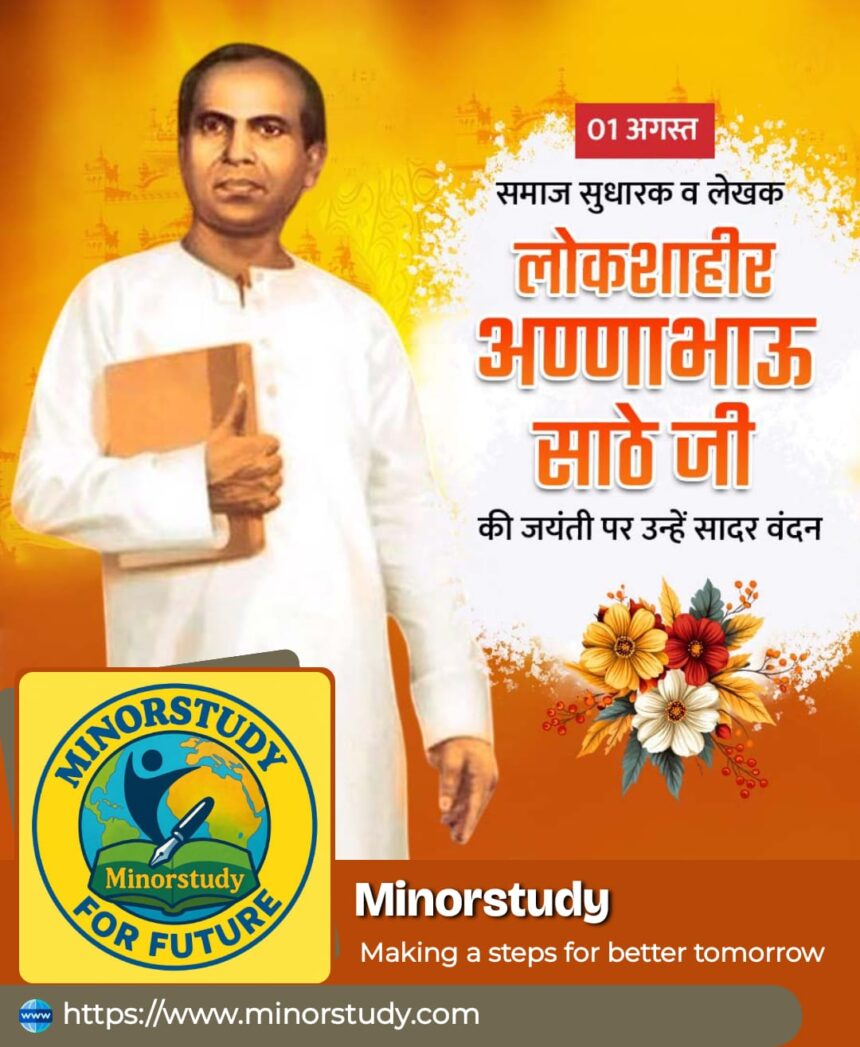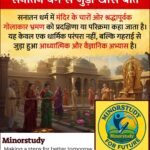🏹 Introduction: The Voice of the Voiceless
In a country deeply divided by caste, class, and colonial rule, emerged a voice that echoed from the chawls of Mumbai to the hearts of millions across Maharashtra — Lokshahir Annabhau Sathe Ji. He wasn’t just a writer or a social reformer; he was a revolution wrapped in a humble dhoti, holding the pen like a weapon, and singing songs of resilience and rebellion.
- 🏹 Introduction: The Voice of the Voiceless
- 🕰️ History and Early Life of Lokshahir Annabhau Sathe
- 🔥 Timeline of Major Life Events
- 📚 Literary Contributions and Iconic Works
- 🧠 Powerful Facts About Lokshahir Annabhau Sathe
- 💫 Significance in Our Lives and Society
- 🙏 Observance and Celebrations
- 🤔 Frequently Asked Questions (FAQs)
- Q1: Who was Lokshahir Annabhau Sathe?
- Q2: Why is he called “Lokshahir”?
- Q3: What is his most famous novel?
- Q4: How did he contribute to labor movements?
- Q5: What is his legacy today?
- 🌟 7 Powerful Reasons Why Annabhau Sathe Still Inspires Millions
- 💐 Wishing on Annabhau Sathe Jayanti
- 🧭 Conclusion: A Legacy that Lives On
- 🧩 Daily Life Impact
Annabhau Sathe (1 August 1920 – 18 July 1969) stands tall in Indian history as a Dalit icon, literary genius, labor leader, and folk poet whose works transcend literature and politics, entering the realm of lived human experiences.
🕰️ History and Early Life of Lokshahir Annabhau Sathe
📍 Birth and Background:
Full Name: Tukaram Bhaurao Sathe
Born: 1st August 1920
Birthplace: Wategaon, Sangli district, Maharashtra
Community: Matang (a Dalit caste)
Family Background: Extremely poor; parents were laborers.
👶 Early Struggles:
Sathe’s schooling ended in the first grade due to caste-based discrimination. At a young age, he migrated to Mumbai with his family in search of work. There, he worked as a porter, hawker, and later as a factory worker.
Despite lacking formal education, he educated himself and learned to read and write in Marathi. His talent was nurtured by the cultural and political movements he associated with.
🔥 Timeline of Major Life Events
| Year | Event |
|---|---|
| 1920 | Born in Sangli District, Maharashtra |
| 1931 | Migrated to Mumbai; worked as laborer |
| 1934 | Joined the labor movement |
| 1943 | Wrote his first play “Deshache Dushman” |
| 1947 | Became a founding member of the Indian People’s Theatre Association (IPTA) |
| 1950s | Published Fakira and other revolutionary novels |
| 1961 | Represented India at the World Peace Conference in Russia |
| 1969 | Passed away at the age of 49 in Mumbai |
📚 Literary Contributions and Iconic Works
Despite no formal schooling, Sathe wrote over 30 novels, 10 plays, hundreds of ballads (powadas), and numerous short stories. His writings highlighted the exploitation of the oppressed, yet carried immense hope and strength.
🔹 Major Works:
Fakira (Novel): Based on a real-life revolutionary; won a state government award.
Maza Janmamaran: Autobiography that details his struggles as a Dalit.
Bidi Kamgaranchi Jhul: Songs of bidi workers.
Deshache Dushman: A powerful play against injustice.
✍️ Style:
His language was direct, passionate, and rich with metaphors from everyday life.
He used folk traditions like powadas (ballads) and tamasha (folk theatre) to connect with the masses.
🧠 Powerful Facts About Lokshahir Annabhau Sathe
He wrote Fakira in jail, which went on to become a literary milestone.
He never received formal education, yet became a Sahitya Ratna.
He was the first Indian writer whose book was translated into Russian.
Sathe’s works are part of the school curriculum in Maharashtra.
He founded the Dalit Sahitya Sangh to uplift oppressed voices.
His songs were used in protest rallies and labor strikes across the country.
Annabhau Sathe Nagar in Mumbai is named in his memory, reflecting his lasting legacy.
💫 Significance in Our Lives and Society
📌 Voice for the Oppressed
Sathe used art as resistance. His songs and stories made the marginalized feel seen, and gave them courage to speak.
📌 Labor Rights
As a worker and activist, he fought for labor rights through trade unions and cultural activism.
📌 Literary Upliftment
He proved that great literature doesn’t require elite education — it requires a soul that feels and bleeds for humanity.
📌 Cultural Icon
His tamashas and powadas brought political awareness to the masses and energized the fight for equality.
🙏 Observance and Celebrations
🎉 Annabhau Sathe Jayanti:
Date: 1st August every year.
Observed in: Maharashtra and among Dalit communities nationwide.
Celebrations include:
Cultural programs
Street plays and powada recitations
Speeches on social justice and Dalit pride
Maharashtra government institutions, schools, and colleges organize Annabhau Sathe Melas, and his literature is publicly read and honored.
🤔 Frequently Asked Questions (FAQs)
Q1: Who was Lokshahir Annabhau Sathe?
He was a Dalit poet, writer, and social reformer from Maharashtra, known for using folk art to raise awareness about caste and class oppression.
Q2: Why is he called “Lokshahir”?
“Lokshahir” means people’s poet. His ballads and tamashas were the voice of the common man, hence the title.
Q3: What is his most famous novel?
Fakira, a novel based on revolutionary themes, remains his most popular and awarded work.
Q4: How did he contribute to labor movements?
He wrote songs and stories for workers, led trade union activities, and inspired them to stand up against exploitation.
Q5: What is his legacy today?
He remains a symbol of Dalit pride, artistic resistance, and the transformative power of literature.
🌟 7 Powerful Reasons Why Annabhau Sathe Still Inspires Millions
Unbreakable Spirit: Born into poverty, he rose as a literary legend.
Empowerment Through Words: His writings gave courage to the downtrodden.
Folk Connect: Used art that resonated with common people — powadas and tamashas.
Uneducated Yet Enlightened: A symbol of self-learning and grit.
Pan-India Relevance: His works cross regional boundaries and speak universal truths.
Cultural Revolutionist: Used culture as a tool of social revolution.
Global Recognition: His books being translated into Russian mark international respect.
💐 Wishing on Annabhau Sathe Jayanti
“On this Jayanti, let us remember Lokshahir Annabhau Sathe Ji — the voice that dared, the pen that roared, and the heart that never gave up. May his life inspire us to stand for justice, speak for the voiceless, and never give up on our dreams.”
🧭 Conclusion: A Legacy that Lives On
Lokshahir Annabhau Sathe Ji’s life is not just a story of individual triumph — it’s a collective inspiration for all who dare to dream in the face of adversity. His works are living testaments to the power of resistance, the dignity of labor, and the soul of India’s oppressed classes.
He didn’t write for fame. He wrote because the pain of his people needed a voice.
And even today, that voice echoes — in literature, in politics, in classrooms, and in the streets.
🧩 Daily Life Impact
Students today study him as an example of perseverance.
Artists recreate his ballads and perform street plays in his honor.
Workers quote his lines during protests.
Youth from marginalized communities draw strength from his journey.








